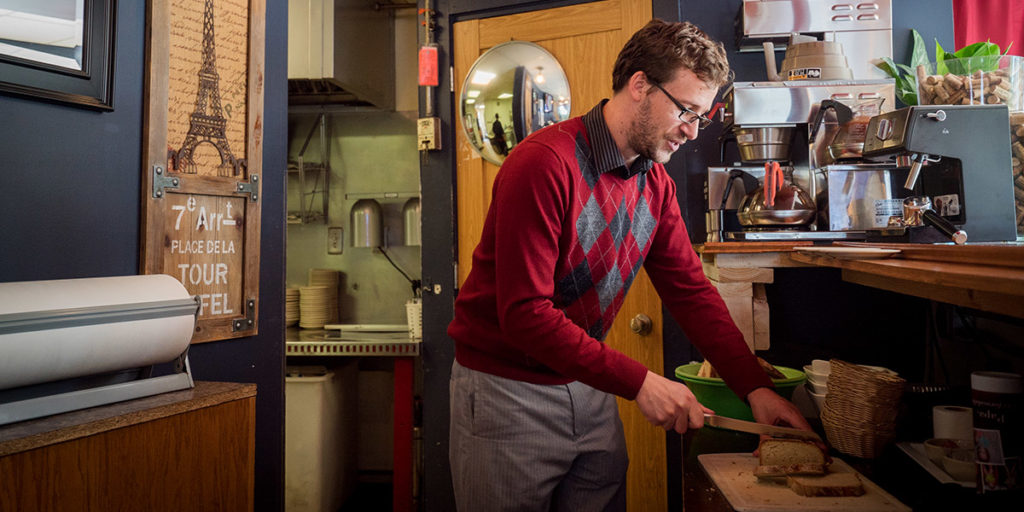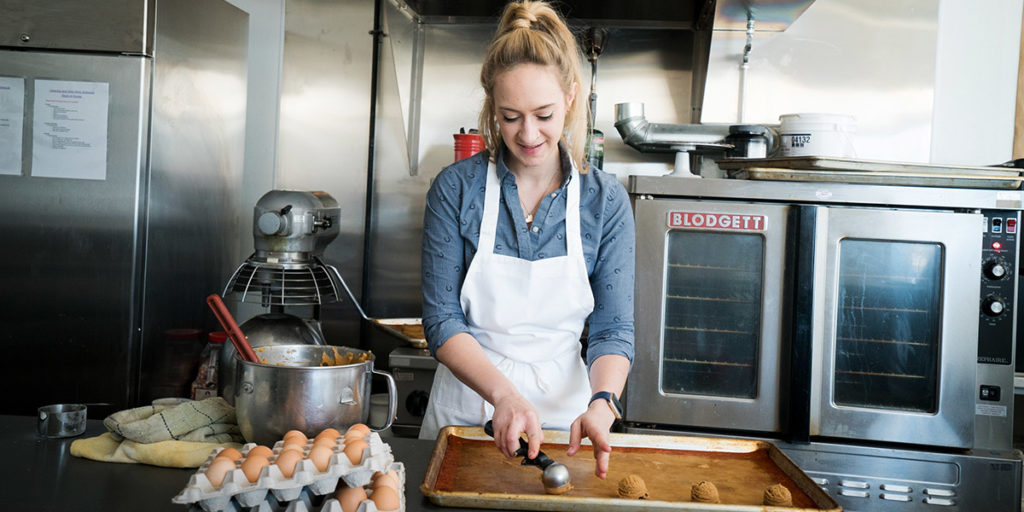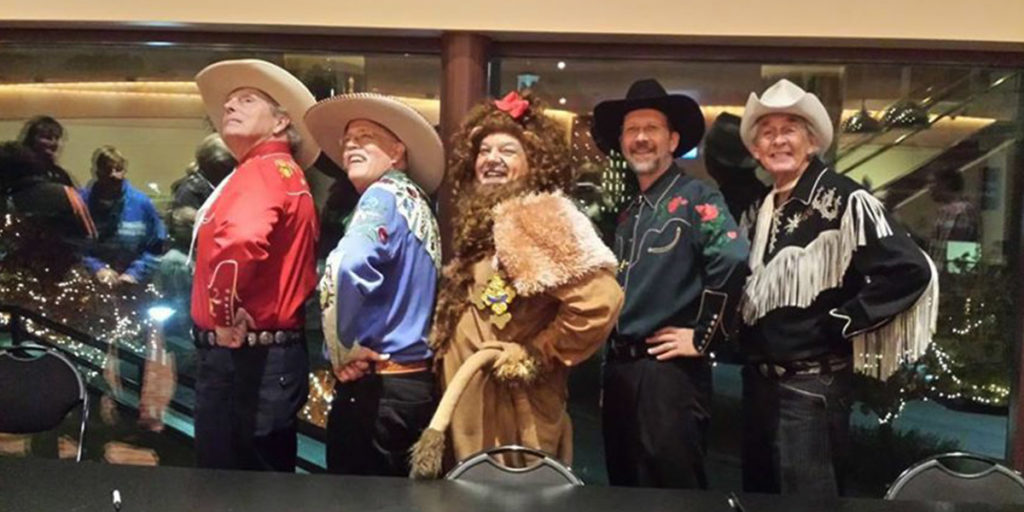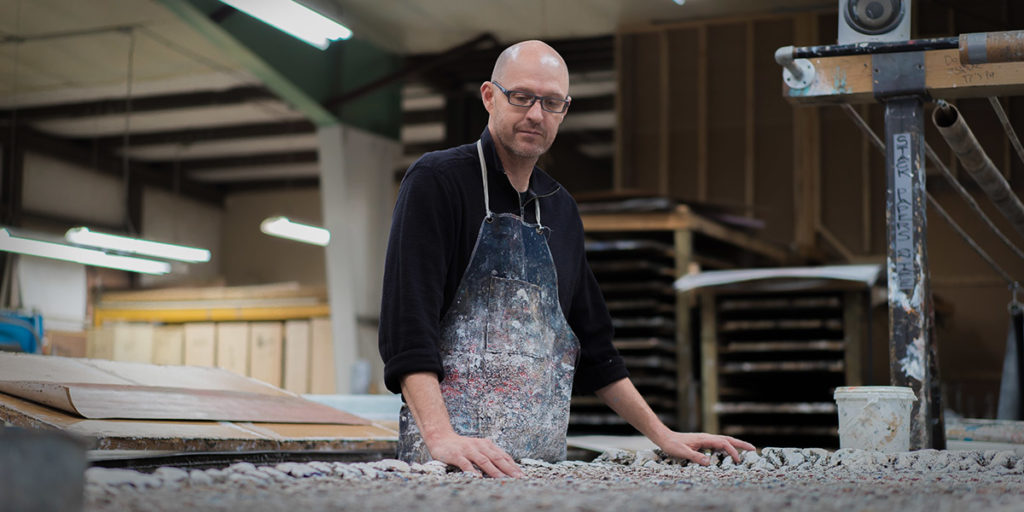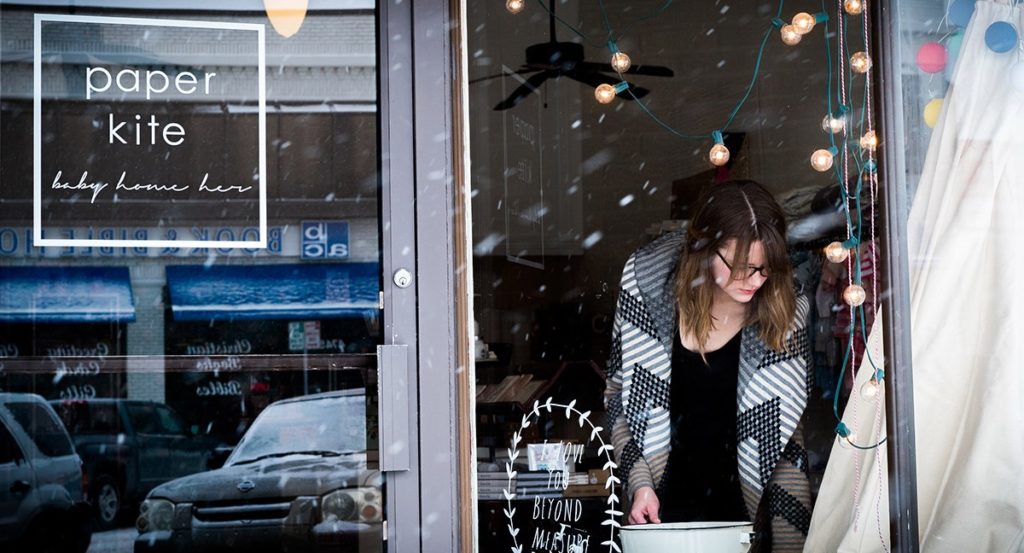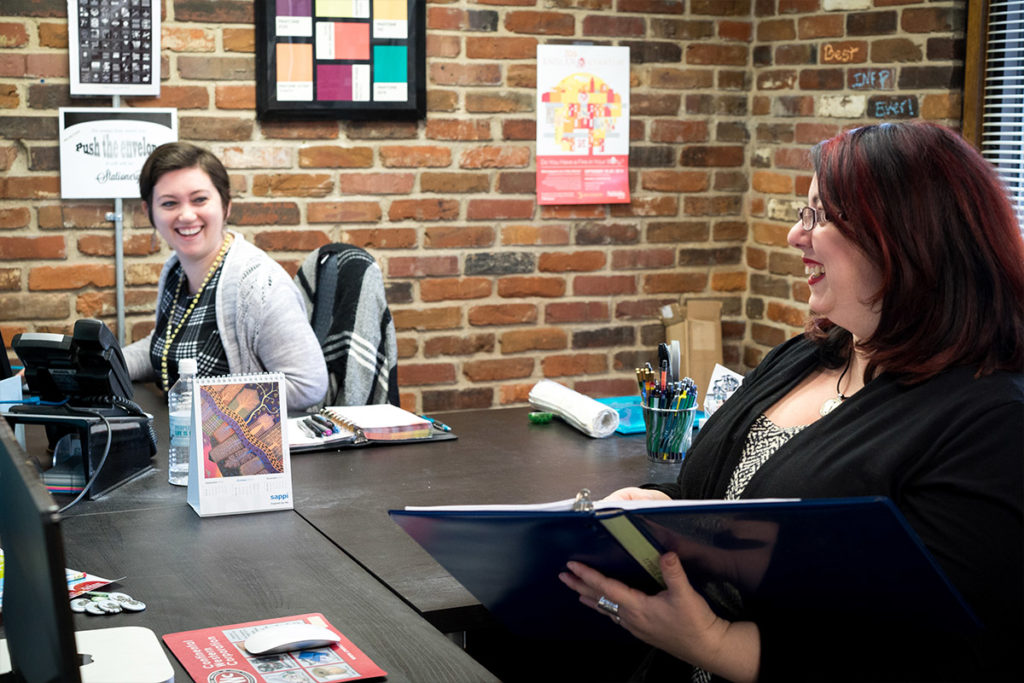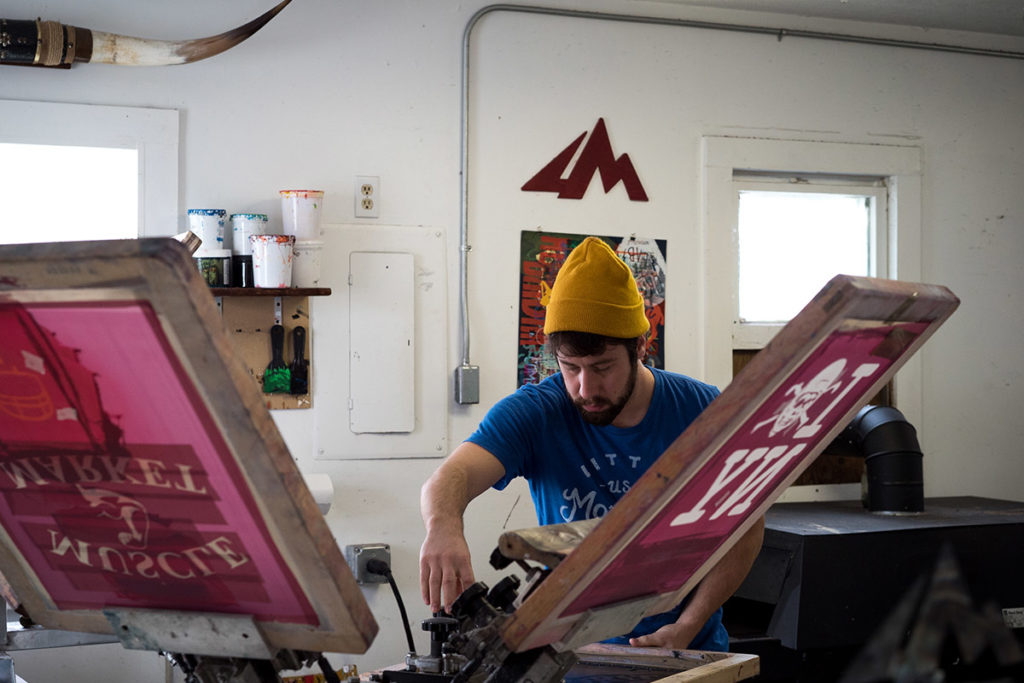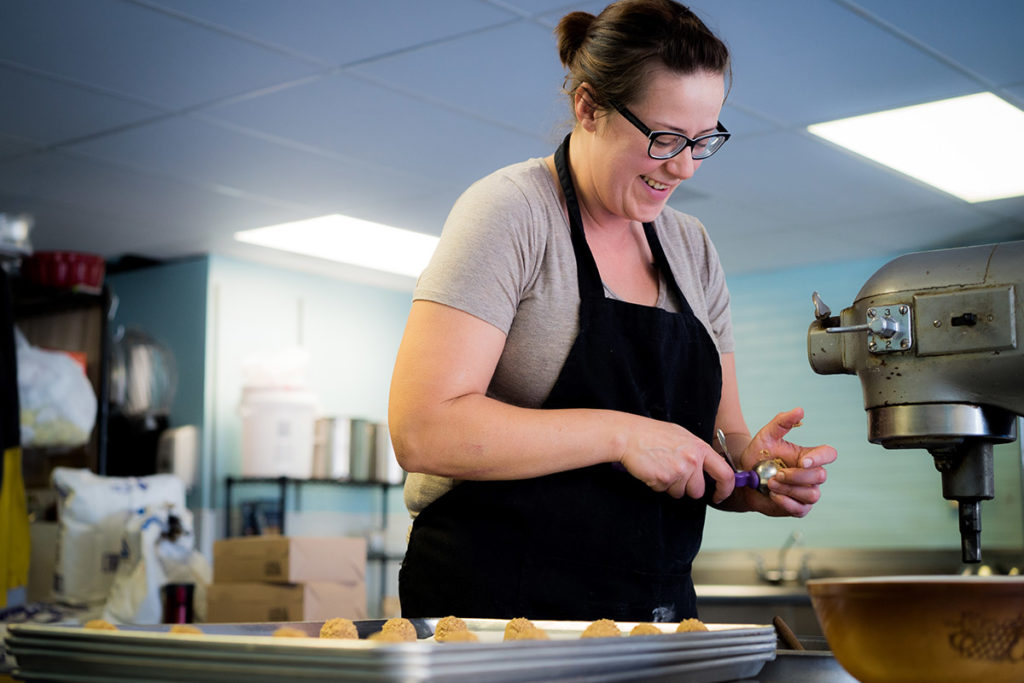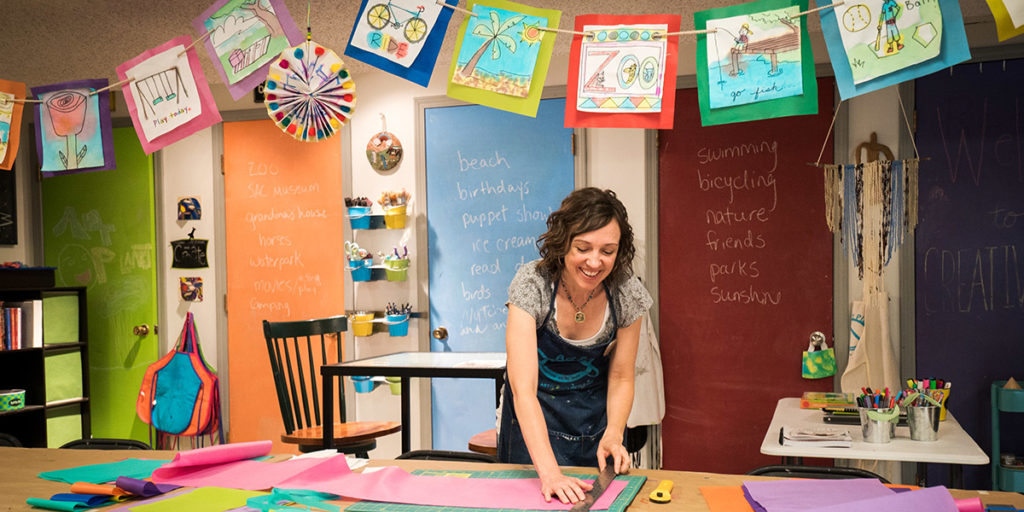
Tamara Kaye runs her business out of her garage, but it’s no ordinary garage.
The floors are white with bright-colored splatter paint, the shelves are lined with bins full of feathers and googly eyes and rainbow-colored storage closets line the back wall.
Tamara actually doesn’t call the space her garage, she calls it Art Planet.
It’s a place she dreamed up five years ago, and offers art classes, events and activities geared toward encouraging imagination and growth for everyone who participates.
But it’s not just a place for kids. Tamara created Art Planet just as much for adults as for kids, and it really started as a way to rebuild her own life.
In 2011, Tamara felt stuck. She had a Fine Arts degree and a Master’s degree in special education, but her creativity had dried up and she didn’t feel like herself anymore.
Her mind was full of questions – What now? What’s next? Will I make it?
Tamara was navigating a painful divorce, homeschooling her three kids and trying to figure out a way to support herself.
She had a friend ask her if she’d ever thought of combining her two degrees to form a hybrid job, and that’s when Art Planet was born.
Tamara had always been a creative kid. She grew up doing art projects at a little table in the family room and her mom encouraged her to pursue art when she got to college.
But after college, life sped up. She had kids, life was busy and she started to question if doing art was even a good use of her time. Maybe she wasn’t an artist after all? Maybe it didn’t matter. Art is just for fun anyway, right?
Lies, lies lies.
Tamara knows those thoughts were lies because of the fact that when she’s creating art she feels free and uninhibited, she feels alive and like herself.
“Art is not an end unto itself,” Tamara said. “It’s not meant to just hang on the wall and look pretty, art touches the human spirit in a way that other things cannot.”
For Tamara, art has been a way to restore herself, but it’s also been about helping others do the same.
Over the years, Tamara has grown Art Planet into a space that hosts birthday parties, family events, after school art classes and even dates. She mentors young artists and hosts summer art camps.
Her business has grown, and she’s proud of what she’s cultivated – both for her family and her customers. But something was missing. After four years of building Art Planet, Tamara wanted to do more.
Sure, people were coming to Art Planet and it was great, but what about the people who couldn’t get to her garage?
So, Tamara started The ArtReach Project, a non-profit that works to integrate art into the community. It’s been less than a year since she’s started this project, but it’s already taking off in ways she never imagined.
Tamara explained that each ArtReach project looks different. So far she’s helped organize a traveling art installation of a 3D Van Gogh painting that’s toured LPS. She’s worked with City Impact to design and create a student-made mosaic art for their new building. She’s inspired shoppers at Gateway Mall to create ornaments by painting on wood slices while they were spinning on record players. She’s even set up at coffee shops asking people to make pinwheels for a student-led organization, Fork in the Road, at Lincoln High. Currently she’s collaborating with Lincoln Parks and Recreation to make a 200+ foot banner of drawings made by people playing in parks to celebrate Lincoln’s nationally recognized status as a ‘Playful City’.
Her goal is to get anyone she can involved in her latest project, despite their age and skill level.
Sometimes people timidly walk past her booth or shy away because they say they’re not ‘creative’ or ‘artistic’ enough.
Tamara can totally relate.
Her story is about questioning her creativity, and coming to the realization that everyone is created to be creative. She’s learned that art can simply be fun and expressive, it doesn’t need to be intimidating or overly complicated.
To say that art has been a major player in Tamara’s story would be an understatement. It’s given her courage, a career, joy, confidence and compassion.
Art is Tamara’s constant. It’s her way of reaching in and reaching out, it’s how she found her story again and it’s how she’s giving back to the community.
